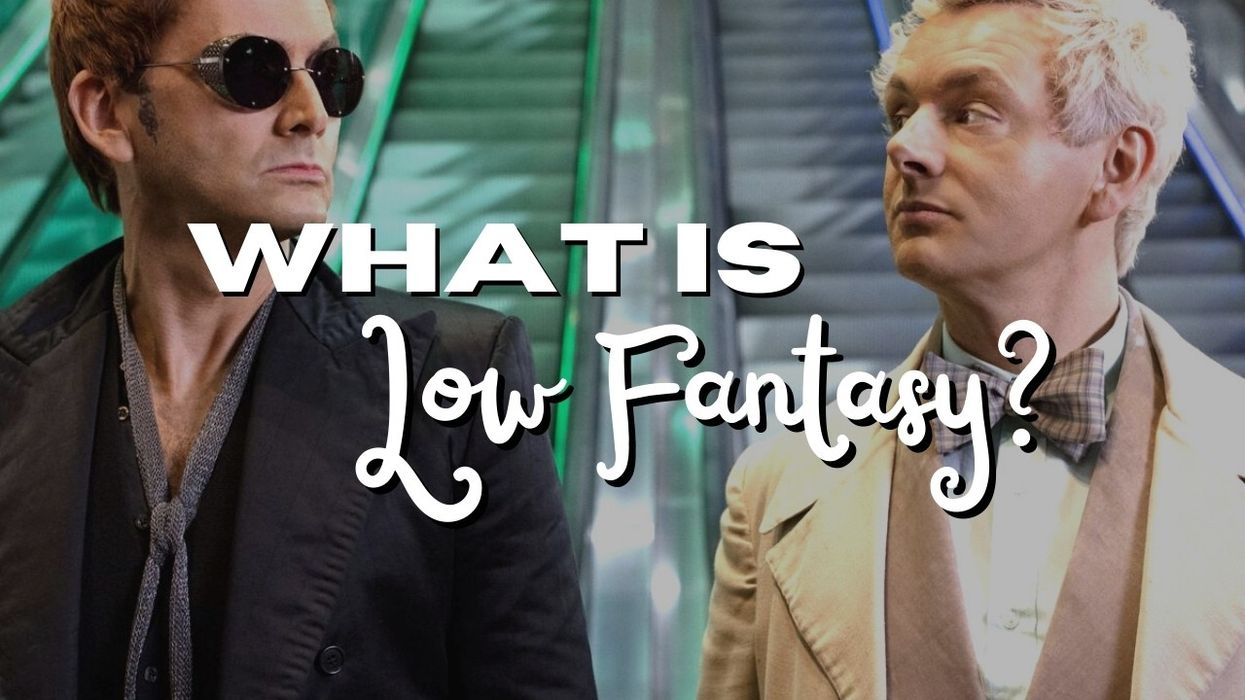What Is the Low Fantasy Genre?
Are you working on any low fantasy ideas for film and television?

Want to learn more about the fantasy genre and specifically what "low fantasy" means? Well, you've come to the right place. We love digging into specific genres here at No Film School, because they help us learn the tropes and expectations audiences have on your work.
Who knew fantasy could be so complicated?
Today, we're going to extract what low fantasy really means and go through a few popular examples in film and television to help send you on your way to worldbuilding, character development, arcs, and writing.
Let's dive in.
What Is the Low Fantasy Genre Definition?
Low fantasy, also known as "intrusion fantasy," is a subcategory of the fantasy genre that showcases supernatural occurrences that happen on our earth.
"Low" is not indicative of quality, but actually denotes the amount of traditional fantasy within the story. These events all happen in our world and intrude into the settings we already inhabit.
Contrast this with "high fantasy," which takes place totally in unfamiliar, secondary worlds.

What Are Some Low Fantasy Tropes and Themes?
While these stories take place in our world, they often have magical elements or creatures that are hiding inside the world we know. They can be stories about good or bad, but these allegories always twist some things we've come to understand and often unlock the secrets behind them.
Low fantasy is related to several other genres or subgenres, like:
- Urban fantasy, which takes place in a modern city as opposed to a rural or even a historical setting.
- Dark fantasy, which uses fantasy with horror elements.
- Paranormal romance, which blends romantic dramas or comedies with fantastical elements.
- Superhero fiction, which takes average humans and imbues them with powers. Especially stories whose powers come from magic and not science.
- Magical realism, which introduces magical elements into our world, but maintains a grounded story.

What Are Some Low Fantasy Genre Examples?
There's no shortage of stories that include low fantasy. This is extremely popular across film and television.
It's usually a much easier sell to executives, because you don't have to build a whole new world—you can use elements of our world, and then add magic to it. These kinds of stories are really popular and are also easy to mash up with other kinds of genres as well.
You have straightforward ones, like Hellboy, but also movies like Twilight and The Shape of Water, which take elements from other genres. You also have stories that are perfect for television, like Once Upon a Time and Good Omens.
When telling these stories, many people choose to dig into the world behind the world we know, like Harry Potter or The Borrowers. This is even popular with Disney animations like The Little Mermaid, Aladdin, and Mulan, which take fantasy elements but put the characters in our world.
As you can see, there are a plethora of titles to pick from. One thing that makes this so popular with writers is that it maintains the stakes of the world we know but allows you to play with the fun, magical elements of other fantastical categories while always having the grounded nature of our world to pull from.
Wrapping Up the Low Fantasy Genre (Definition and Examples)
How was this exploration of low fantasy? Did it make you want to check out high fantasy?
Either way, this storytelling pillar has helped transport imaginations for years and will be a staple of film and television for years to come. So whether you want to learn how to write a pilot or how to write a feature film screenplay, consider diving into low fantasy and making all your dreams come true.
Let us know what you think of this genre and your favorite examples in the comments.
- What Is the High Fantasy Genre? (Definition and Examples) ›
- Watch: What's the Difference Between High and Low Fantasy? ›
- What Is the Low Fantasy Genre? (Definition and Examples) ›
- Genre type list ›
- Follow the Map to the Fantasy Genre in Film and TV ›











